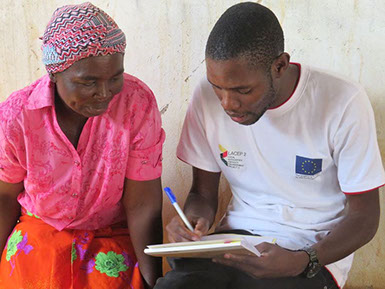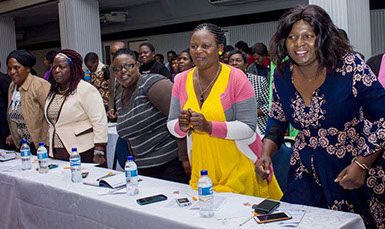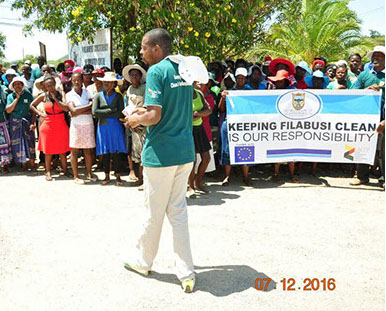Annual Update 2020 VNG International



‘Budget literacy is a challenge in some communities as some just come to reject the budget without observations of its goodwill.’
Ms. L. Whata,
Redcliff Municipality, in the
LACEP Budget workshop
‘With LACEP support, the Council’s relationship with the Residents Associations has improved, the Councillors are active in engagement and taking lead in budget consultations.’
Mr. G. Chakauya, Town Clerk
of Redcliff Municipality
building more effective public administration by strengthening democratic local government
Featured Project
Zimbabwe, Local Authorities Capacity Enhancement Project II (LACEP II)
LACEP II aims to ensure effective, efficient and participatory development at the local level in Zimbabwe by making sure service delivery by the Local Authorities (LAs) is more inclusive, gender responsive and pro-poor focused. The project focuses on improving the financial management systems of five LAs in the South Western Region of Zimbabwe, with strong emphasis on improving budgeting, reporting, revenue collection and citizen engagement. This will help them to improve on the transparency and clarity of their budgets so as to make them more accountable to the public. Furthermore, the project is cooperating with the two Associations of Local Authorities (ALAs) to strengthen their capacity so as to facilitate an enabling environment for local government.
Some of the results achieved in the first two years of LACEP II:
- The public financial management systems of all five targeted municipal councils have improved through trainings and coaching on national policy reform measures such as programme based budgeting (PBB) and the new chart of accounts (CoA). As a result, all five LAs have been able to submit budgets to the ministry of Local Government, which are compliant with national requirements on programme based budgeting resulting in more realistic budgets.
- Citizens have been made more aware of the budget process, amongst others through participation in service delivery engagement workshops. It is expected that increased engagement of citizens in the planning and budgeting process will also contribute to a higher willingness to pay taxes.
- The two Associations of Local Authorities (ALAs) have initiated lobby and advocacy initiatives to discuss the national policy framework in support of local governance. Both ALAs have been able to organise conferences for all their 92 members (32 urban, 60 rural) to meet the President of the Republic of Zimbabwe, Cabinet Ministers and key departments to the project, in which they discussed issues affecting the operations of the local authorities. As a result of these conferences, the Ministry of Mines committed itself to disburse mining royalties to the rural LAs. Moreover they requested for rates clearance certificates from miners when they renew their annual inspection certificates, which will ensure that rural LAs have the power to levy tax, thus enhancing sources of income for rural LAs. Furthermore, UCAZ (the urban association) has developed a devolution matrix which will be presented to relevant ministries to further contribute to the devolution process.
- All newly elected municipal councillors, including those from the South Western region, have increased knowledge on the working of local government and decision-making through trainings. The trainings resulted in increased understanding of the role of a councillor, re-evaluation of their past terms against the newly obtained (councillor) information, more awareness and lastly in the opportunity for peer to peer learning.
- The executive members of the Women in Local Government Forum (WILGF) of the rural local government association (ARDCZ) were capacitated on their roles and responsibilities in championing gender mainstreaming in the local governance sector. WILGF is developing strategies on influence and lobby for more female political representation in LAs.